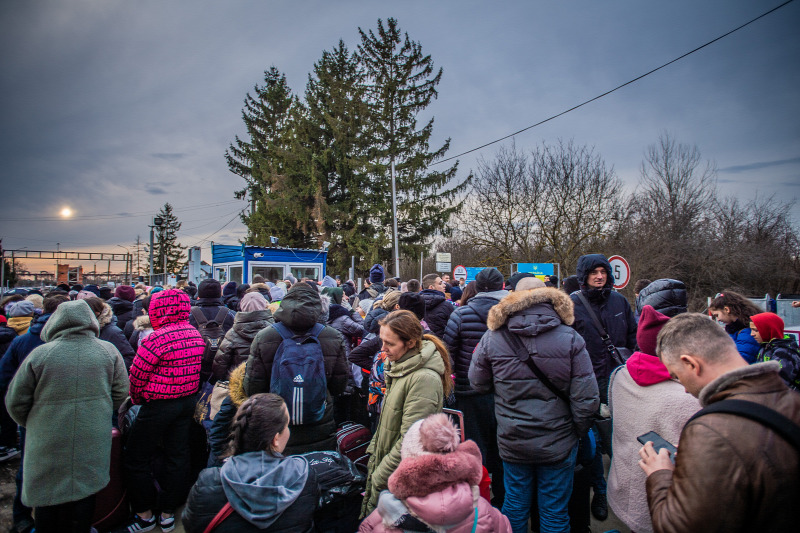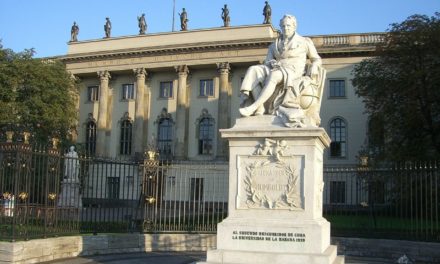The experience of the past years - even decades - shows that economic immigrants and refugees from outside Europe integrate much more slowly into the labor market of the host country - said Janik Szabolcs, the operational director of the Migration Research Institute, who believes that it is certain that Western countries see greater potential to fill the holes in the labor market in Ukrainians - if they do not return home.
Another question is whether, if the economy of the Union collapses as a result of the conflict, it will be possible to integrate this mass of hundreds of thousands or even millions. For the time being, all the countries neighboring Ukraine are acting as an example in accepting refugees, performing beyond their means in their basic care, Janik Szabolcs, the operational director of the Migration Research Institute, told our newspaper in connection with the Ukrainian-Russian war, adding that, for the time being, it is not possible to know exactly how many of the refugees continue to leave to Western Europe. And how many and at what pace they would return home obviously depends on how and when the armed conflict ends.
According to the Chief Operating Officer
refugees from Ukraine are certainly welcomed with open arms by the wealthy Western member states, where they can ease the labor shortage with their arrival.
Of course, if the EU's economy crumbles due to the state of war, the energy crisis and the sanctions policy, then whether it will be possible to integrate the hundreds of thousands/millions of potential people, underlined Janik Szabolcs.
Stealth legislation
In response to our question as to whether Western states distinguish between economic migrants and Ukrainian refugees, he explained: the member states decided to activate the so-called temporary protection directive, according to which refugees from Ukraine are automatically granted a one-year residence permit, which can be extended to three years. . They can take up work and have access to all major care systems in all EU member states. The law also contains a solidarity element, according to which a solidarity platform enables the distribution of refugees. This is a relatively clear situation, everyone agrees to help the refugees from Ukraine - and of course, as I mentioned, there will be those who will be "happy" about their arrival from the point of view of the labor market, said the operational director.
As he pointed out: Ukrainians have taken up legal work in EU member states en masse, and there is plenty of experience with their employment. And actually
it's a "win-win situation" for the hosts: they can help war refugees while also getting new employees.
However, according to the operational director, the current situation should not be confused with the migration-related debates that have dominated the past years, since refugees from wars raging in non-neighboring countries are primarily arriving at the southern (external) border of the European Union. Accordingly, member states that support the protection of external borders and strongly reject irregular migration will not engage in any "stealth" legislation that would blur this difference.
You have to be careful
Janik Szabolcs added: the experience of recent years - even decades - shows that economic immigrants and refugees from outside Europe integrate much more slowly into the labor market of the host country. In addition, their care, retraining, and language education consume serious billions. Of course, the payback is easier and faster with a highly qualified workforce that speaks languages (this is not only true for Ukrainians, see, for example, the "sucking" of Syrian doctors to Germany). In the case of Ukraine, cultural proximity and the already mentioned experience in employing Ukrainian labor will undoubtedly be an advantage.
According to Janik Szabolcs, it is absolutely true that Western European countries see a greater potential for filling the holes in the labor market. At the same time, we must add that Ukrainian citizens have been able to travel visa-free to the territory of the EU until now, and the member states have given them every opportunity for longer employment, said the operational director.
Janik Szabolcs also underlined:
in addition to the war in Ukraine, the external border sections affected by irregular migration must continue to be protected.
Those who entered and submitted an asylum application, and then received a final decision that they cannot stay in the EU - no matter where they come from - must still be repatriated. The other issue is that, on average, 3 out of 10 people manage to be sent home from the Union. The situation in Ukraine should not and should not be confused with illegal immigration aimed at Europe. Of course, it is possible that more people want this - that's why we have to be very careful now, while we do everything to help those coming from Ukraine.
Featured image: Márton Koncz/Origo












